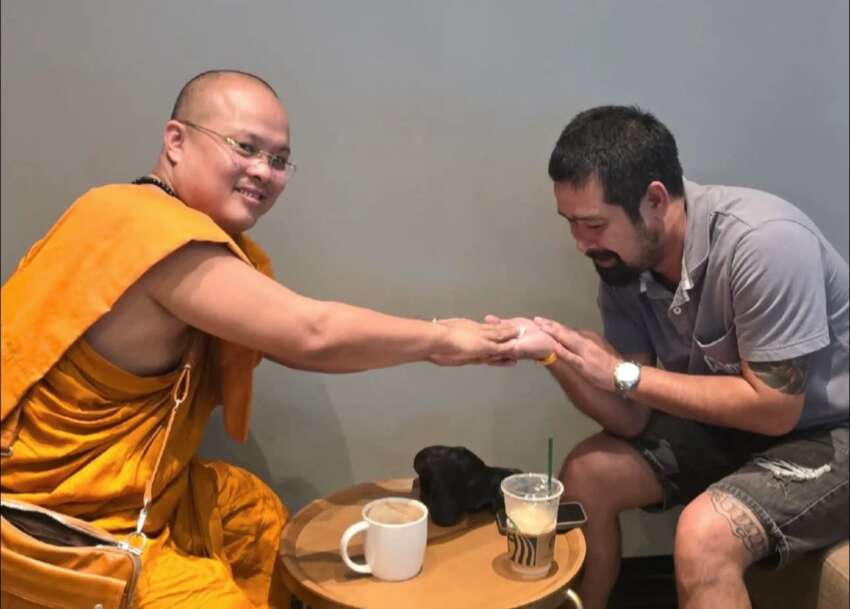
The leader of the military council-affiliated Pyusawhti group, known as Pauk Ko Taw, met with Thai ultra-nationalist figure ‘Mustache’ in Bangkok, as revealed through a video posted on his personal social media account. The meeting took place on September 8th in Bangkok. The Thai ultra-nationalist royal conservative activist Mustache, also known as Sonchai Ni(yom)hom, is known for leading social media campaigns against Myanmar and Cambodian migrant workers and spearheading efforts to report and arrest migrant workers, particularly in Bangkok and southern Thailand.
During their meeting, Pauk Ko Taw explained about the Ma Ba Tha organization, while Mustache discussed measures to prevent Myanmar nationals who had been deported from Thailand from returning to the country. Pauk Ko Taw claimed he had traveled to Bangkok to search for Ko Si, the founder of the People’s Support Team (PST Network), following an online dispute between them on social media platforms.
Pauk Ko Taw is known for nurturing Pyusawhti groups under the military council’s authority and consistently pressuring the military to arm these groups and suppress People’s Defense Forces (PDF). His trip to Thailand has raised concerns among activists who suggest that the visit may be aimed at disrupting revolutionary support networks. Analysts have noted that his presence in Thailand, particularly his meeting with Thai nationalist groups, appears to be part of a broader strategy to undermine resistance forces and support networks operating from Thailand.
The meeting has sparked concern among Myanmar democracy activists in Thailand, who view this collaboration between a military-affiliated figure and Thai ultra-nationalist elements as a potential threat to the safety and security of Myanmar migrant workers and revolutionary support networks in Thailand. Observers emphasize the need for vigilance among Myanmar communities in Thailand, as this meeting could signal increased pressure on revolutionary support networks and migrant communities. The collaboration between these figures represents an expansion of military council-aligned activities beyond Myanmar’s borders, potentially threatening the operations of pro-democracy groups in Thailand.



